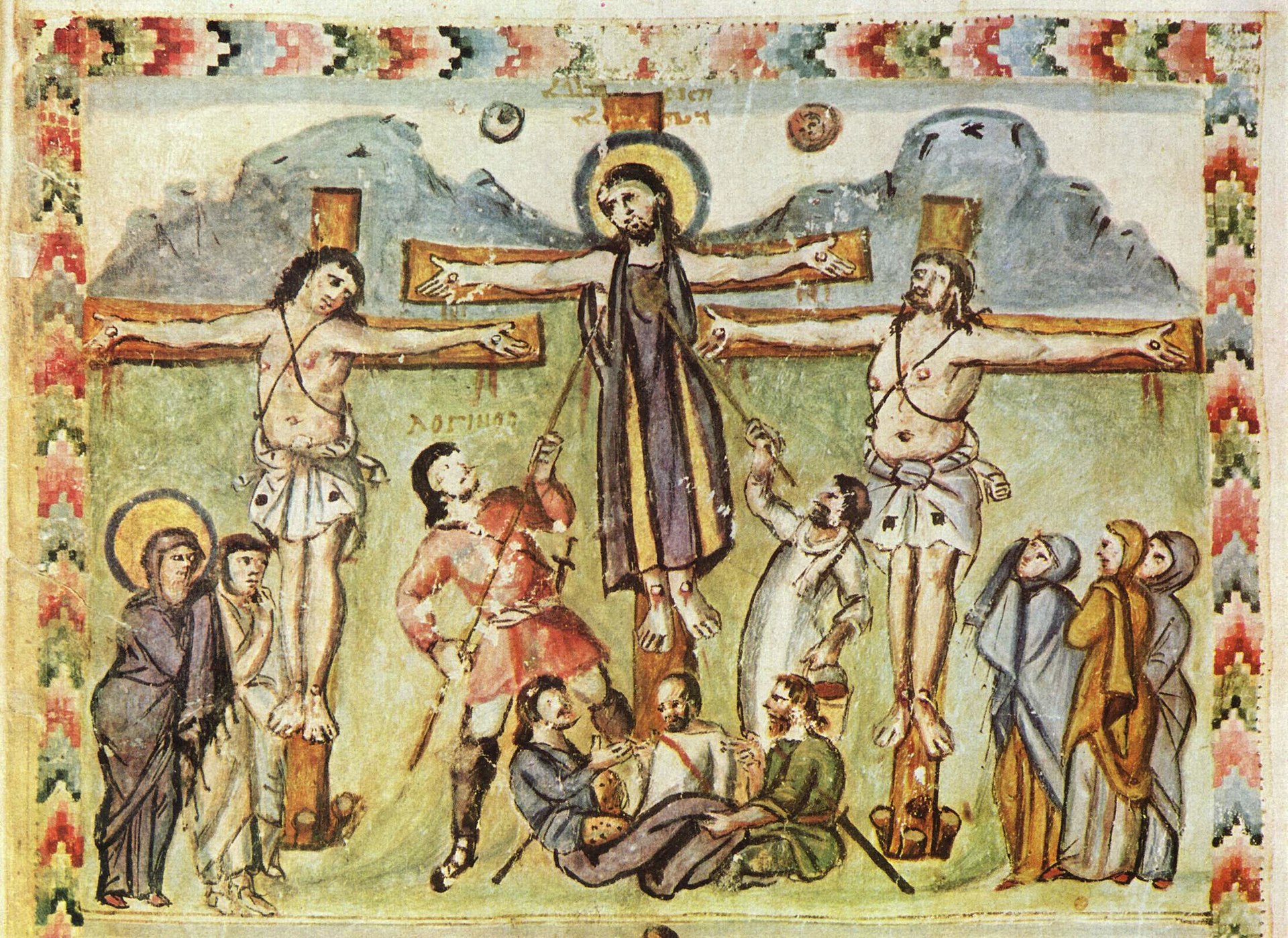Supposedly, Christianity will go away. We will evolve and move on. Infuriatingly for some, it’s not going away that easily. Today, we remember a day when Jesus was supposed to go away. But, things did not go as planned. Crucifixions were supposed to be smooth and orderly. Everyone played their part to make sure the punishment was carried out with maximum efficiency and elegance. But this was no ordinary crucifixion. Things had already been going off the rails. Pilate couldn’t find a crime but gave in to the crowd’s call for Jesus to be crucified. Jesus himself was not displaying the normal characteristics of the guilty. But surely the day…
-
-
Defending Penal Substitution: A Reply to Abbot Tryphon
Abbot Tryphon argues that the penal substitutionary theory of the atonement is heresy. Tryphon calls the view “pagan” view in which “we are forced to view our God as some sort of angry deity needing to be appeased by a blood sacrifice.” Tryphon’s main argument is that if we accept the penal substitutionary view, then we are forced to accept two consequences, both of which are false: “The major problem with this teaching can be seen in the fact that had Christ died for our sins against God the Father, thus causing a division of God, with the doctrine of the Holy Trinity laid waste, with God pitted against God.…
-
Atonement: A Balance of Punishment?
The theory of penal substitutionary atonement states that Jesus Christ, the incarnate Son of God, took the punishment that we deserve. Some suggest that if Christ takes the punishment we deserve, then he must take the same (or identical) punishment we deserve. This thought generates an objection to the penal substitutionary theory of the atonement. The argument is something like: If we deserve eternity in hell, then, in order to take our punishment, Christ must spend eternity in Hell. Christ does not spend eternity in Hell. Therefore, we do not deserve eternity in Hell There is good reason to reject this argument. The first thing to notice is that this argument…
-
What is the Meaning of the Cry of Dereliction?
On the cross, the Messiah cries, “Eli, Eli, lama sabachthani?” that is, “My God, My God, why have You forsaken Me?” (Matthew 27:46b). His words are a quotation of David’s prophetic psalm, psalm 22. But what can Jesus possibly mean? How could the Son be forsaken by the Father? How do we explain the Messiah’s question? Surely he of all people knows why he is on the cross. The answer lies in an understanding of Psalm 22. Under the inspiration of the Holy Spirit, in the first verse, David gives the Messiah his script. His cry is a forlorn cry of dereliction: My God, my God, why have You forsaken…
-
Atonement and Punishment: A Defense of Retribution
Here is a common argument against the penal substitutionary view of the atonement: The penal substitutionary view of the atonement entails a retributive view of punishment, but retribution is insufficient moral justification for punishment. Therefore, the penal substitutionary theory of the atonement is false. In response, I shall argue that the retributive justification of punishment is well supported by the Bible and by commonly held intuitions about meritorious actions. The penal substitution view of the atonement holds that sinful human beings deserve divine punishment and that Jesus Christ was punished in their place. According to this view, punishment is deserved by a sinner but can be absorbed by someone other…
-
The Rise of the Pseudo-Cause: A Distraction From What’s Really Wrong
I remember taking part in a massive protest at my boarding school. Almost all of us refused to eat in the school canteen. It worked – we won. Our cause? To change the catering company of the school. That was it. We did not defeat communism, institute civil rights, or remove a dictator. We merely changed our menu (and, as far as I can recall, not by much). Many people feel like they should have a big cause, some great evil to overturn, but can’t seem to find one. So they choose something that isn’t really a cause at all. They protest over nothing. Or, finding no evil of particular…
-
Atonement: Knowledge of His Wrath
And I heard the angel of the waters saying, “Righteous are You, who are and who were, O Holy One, because You judged these things; for they poured out the blood of saints and prophets, and You have given them blood to drink. They deserve it.” And I heard the altar saying, “Yes, O Lord God, the Almighty, true and righteous are Your judgments.” In Revelation 16:4-7, John records the proclamation of the angel who affirms the just punishment of those who “poured out the blood of saints and prophets” (v. 6). The angel tells us that the persecutors of God’s people deserve their punishment and that punishment displays the…
-
Atonement: Affliction for Affliction
Paul commences his second letter to the church at Thessalonica with an encouragement for those experiencing affliction. Paul tells his readers that it is just for God to repay in kind those who afflict them.[1] He tells the Thessalonians that God will “repay with affliction” those who afflict his reader (2 Thess 1:3-9). The term, ‘repay’ (ἀνταποδοῦναι), means ‘to give back’ or ‘return’ what is due.[2] In this case, those who afflict God’s people will be repaid with affliction from God. Paul goes on to tell his reader that such a repayment is retributive: God will deal out “retribution to those who do not know God and to those who…



